Organic gardening with organic topsoil is quickly becoming one of the most popular methods for achieving a healthy and sustainable garden. Organic topsoil is rich in essential nutrients and minerals, making it an ideal choice for those looking to build a healthy and balanced garden. However, to ensure that your plants are able to thrive in this type of soil, it is important to use organic fertilizers and nutrients. Organic fertilizers and nutrients are specifically designed to complement organic topsoil and provide your plants with the essential nutrients they need to grow strong and healthy. In this article, we will explore the different types of organic fertilizers and nutrients available, as well as how to properly use them in combination with organic topsoil.
We will also discuss the benefits of using organic fertilizers and nutrients, so that you can make an informed decision when it comes to choosing what’s best for your garden. Organic fertilizers and nutrients are essential for any successful garden. They provide essential nutrients to the soil, allowing plants to grow better and healthier. Organic fertilizers and nutrients come from natural sources, such as compost, manure, and green manures. Unlike synthetic fertilizers, they are more environmentally friendly and can help to improve soil health.
When it comes to choosing the right organic fertilizers and nutrients for your garden, soil testing is essential. This will help you to identify which nutrients are needed for your soil and plants. You should also choose a fertilizer based on your soil type and plants’ needs. Slow-release fertilizers provide a steady supply of nutrients over time, while fast-release fertilizers provide a quick boost of nutrients.
It is also important to know how to apply organic fertilizers and nutrients correctly. The best time to apply them is usually in the spring, but this will depend on the type of fertilizer and your climate. You should apply the right amount of fertilizer, as too much or too little can be harmful to your plants. Additionally, you may want to mix organic fertilizers with other organic materials such as compost or mulch to increase their effectiveness.
People often make mistakes when using organic fertilizers and nutrients, such as over-fertilizing, not applying enough fertilizer, or applying too often. These mistakes can be harmful to your garden, so it is important to avoid them. If you want to learn more about organic fertilizers and nutrients, there are plenty of resources available. Books, websites, and gardening forums can all provide helpful information.
Resources
When looking for organic fertilizers and nutrients for your organic topsoil, there are a number of resources available to you. You can purchase them from a local garden center or nursery, or you can look online. Here are some tips to help you find the right products.Organic fertilizer and nutrient options
Organic fertilizers and nutrients come in a variety of forms, including compost, manure, seaweed extract, rock dust, and more. Each type of fertilizer has its own benefits and drawbacks, so it’s important to research each one carefully before deciding which is best for your garden.Organic fertilizer and nutrient suppliers
Once you’ve decided which type of fertilizer is best for your garden, you’ll need to find a supplier.Depending on where you live, you may be able to find local suppliers that specialize in organic products. If not, there are plenty of online stores that offer a wide selection of organic fertilizers and nutrients.
Application and use instructions
When using organic fertilizers and nutrients, it’s important to follow the instructions on the package. Different types of fertilizers and nutrients may need to be applied differently or at different times of the year. Additionally, it’s important to make sure that the fertilizer is mixed properly with water before applying it to the soil.What Are Organic Fertilizers And Nutrients?
Organic fertilizers and nutrients are natural substances that help to enrich the soil, providing essential nutrients for plant growth.These fertilizers and nutrients can come from a variety of sources, such as compost, manure, green manures, fish emulsion, seaweed extracts, and other plant and animal-based products. Organic fertilizers and nutrients provide essential macro and micronutrients to the soil, such as nitrogen, phosphorus, potassium, magnesium, calcium, and other trace minerals. Organic fertilizers are also known for their ability to improve soil structure and fertility. They can help to increase the availability of certain nutrients in the soil while also improving drainage and aeration. As a result, they can help to promote healthier plant growth and reduce the need for chemical fertilizers. When choosing organic fertilizers and nutrients for your garden, it’s important to consider the type of plants you’re growing.
Different plants require different amounts of nutrients, so it’s important to choose a fertilizer or nutrient that is specifically designed for the plants you’re growing. Additionally, it’s important to consider the specific needs of your soil. Different soils have different nutrient needs, so it’s important to choose a fertilizer or nutrient that is suited for your particular soil type. Organic fertilizers and nutrients are a great way to provide your garden with the essential nutrients it needs to flourish. When choosing an organic fertilizer or nutrient for your garden, it’s important to consider the type of plants you’re growing and the specific needs of your soil.
Common Mistakes When Using Organic Fertilizers And Nutrients
Organic Fertilizers and Nutrients are a great way to give your garden the nutrition it needs to thrive.However, using them incorrectly can be detrimental to your plants. Here are some common mistakes to avoid when using organic fertilizers and nutrients:1.Not accounting for the soil pH. Different organic fertilizers and nutrients require different soil pH levels in order to be effective. Before applying any fertilizer or nutrient, make sure to test your soil's pH and adjust accordingly.2.Over-fertilizing.
It is easy to get carried away with fertilizers and nutrients, but too much can be as harmful as too little. Make sure to follow the directions and use the recommended amount for best results.3.Not considering other nutrients in the soil. Organic fertilizers and nutrients are not a one-size-fits-all solution; they should be used in combination with other nutrients already present in the soil. Make sure to assess the existing nutrients before deciding what additional organic fertilizer or nutrients to add.4.Neglecting soil health.
Organic fertilizers and nutrients can help give your plants a boost, but they should not be used as a substitute for healthy soil. Make sure to also focus on improving the overall health of your soil for best results.
How To Apply Organic Fertilizers And Nutrients
Organic fertilizers and nutrients are essential for maintaining the health of your soil and promoting healthy growth of your plants. Applying organic fertilizers and nutrients correctly is important to get the most out of your soil and achieve optimal results. Here are some tips on how to apply organic fertilizers and nutrients to your garden.1.Know Your Soil:
Before applying organic fertilizers and nutrients, it is important to understand the type of soil you are dealing with.Different soils have different needs, so it’s important to know what kind of soil you have in order to choose the right organic fertilizers and nutrients.
2.Choose the Right Fertilizer:
Once you know the type of soil you have, you can choose the right organic fertilizer and nutrient for your specific needs. Look for organic fertilizers and nutrients that are tailored for your soil type, and make sure they contain the essential macronutrients such as nitrogen, phosphorus, and potassium.3.Follow Instructions:
Once you have chosen the right fertilizer for your soil, follow the instructions on the packaging carefully. Make sure to apply the fertilizer at the right time of year, and in the correct amount. Too much fertilizer can be damaging to your plants, so it’s important to follow the instructions carefully.4.Choose the Right Time:
It is best to apply organic fertilizers and nutrients in the spring or fall when the soil temperature is cooler.This will help ensure that your plants get the most benefit from the fertilizer. Avoid applying fertilizers during periods of extreme heat or cold, as this can be damaging to your plants.
5.Monitor Soil Conditions:
After applying organic fertilizers and nutrients, it is important to monitor the soil conditions regularly. Check for signs of nutrient deficiency such as yellowing or wilting leaves, as well as signs of over-fertilization such as burning or stunted growth. Adjust your fertilizer application accordingly.How To Choose The Right Organic Fertilizers And Nutrients
When it comes to selecting the right organic fertilizers and nutrients for your garden, there are a few key factors to consider.The type of plant you are growing, the soil’s pH levels, and the climate in your area will all play a role in determining which organic fertilizers and nutrients are best for your garden. Before you purchase any organic fertilizers or nutrients, it is important to understand the nutrient requirements of the plants you are growing. Different types of plants have different nutrient requirements, so it is important to choose fertilizers and nutrients that are tailored to your specific plants. If you are unsure of what your plants need, it is best to consult with a local horticulturist or agricultural specialist who can provide you with advice on the type of fertilizers and nutrients that will work best for your plants. Another factor to consider when choosing organic fertilizers and nutrients is the soil’s pH levels.
Different types of organic fertilizers and nutrients have different pH levels, so it is important to choose ones that are appropriate for your soil’s pH levels. If you are unsure of what your soil’s pH levels are, you can test them with a soil testing kit or have them tested by a local extension service. Finally, it is important to consider the climate in your area when choosing organic fertilizers and nutrients. Different types of organic fertilizers and nutrients are better suited for different climates and will work differently depending on where you live. For example, some organic fertilizers and nutrients may not be as effective in colder climates as they would be in warmer climates. By taking the time to research and understand your garden’s nutrient needs, you can ensure that you select the right organic fertilizers and nutrients for your garden.
You can also consult with a local horticulturist or agricultural specialist who can provide expert advice on the types of organic fertilizers and nutrients that will work best for your garden. Organic topsoil provides a great foundation for a healthy garden, but adding organic fertilizers and nutrients can help increase the productivity of your garden significantly. It is important to choose the right organic fertilizers and nutrients for your garden, and to apply them properly in order to achieve the desired results. Avoid common mistakes when using organic fertilizers and nutrients, and make sure you have all the necessary resources to make the process a success.

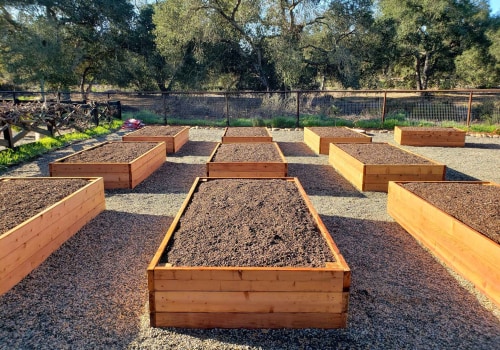
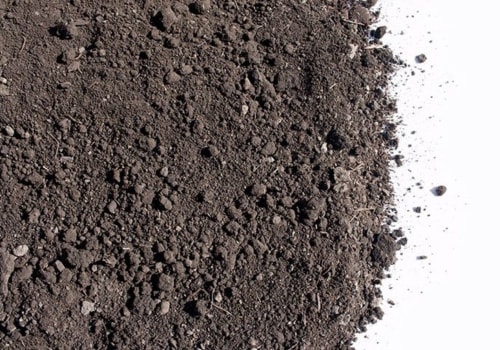


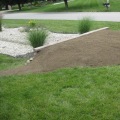

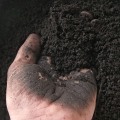
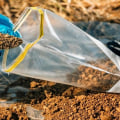
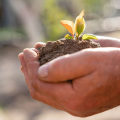
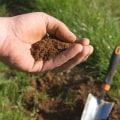
Leave a Comment